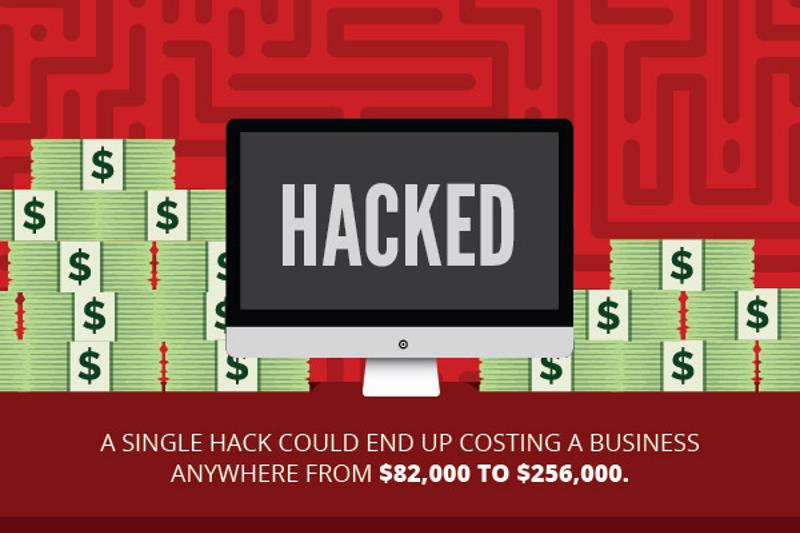Small Business: A Target for Cyber Criminals
Credit to Author: Trend Micro| Date: Mon, 16 Oct 2017 21:55:53 +0000

The age of cyber threats has been marked with critical vulnerabilities, evolving strains and organizations that have faced the consequences. Target's breach, the rise of ransomware like WannaCry and the recent Equifax hack serve as lessons that these attacks are the new normal for companies, making security a bigger necessity than ever before. With many of these well-publicized incidents revolving around larger enterprises, it's easy for small- and medium-sized businesses to become complacent, believing they are safe and under the radar of malicious actors.
This is a dangerous assumption: SMBs are sitting ducks for cyber criminals, and as leaders better understand their risk, they struggle to take action against emerging threats. According to the MetLife and U.S. Chamber of Commerce Small Business Index, 60 percent of SMBs are concerned about cyber security. Those with 20 to 99 employees are more likely to be worried about this threat than companies with fewer than 20 staff members. No matter how small your business is, it still serves as a lucrative target for cyber criminals.

Lack of funds for security solutions
For many SMBs, watching the budget is necessary to keeping the lights on and ensuring the business lives to operate another day. This leaves very little room for other initiatives or unexpected costs. Unfortunately, this lack of funds shows often in the security solutions that SMBs implement. Some organizations have the basics while others don't have anything at all, relying on their size to avoid the attention of cyber criminals. However, without cyber solutions, SMBs are leaving themselves wide open, which is what attackers look for in their potential targets.

Misconceptions and misplaced priorities are reflected in SMB spending for their security systems. According to an industry survey, 45 percent of small business owners believe they'll never be targeted, and 38 percent stated they wouldn't spend anything on cyber security protections this financial year. Overall, 78 percent of participants noted they would either spend nothing or a very small portion of their budget to tackle threats.
If you think you don't have the funds for security, consider the potential consequences: It's equally as unlikely that you'll have the funds necessary to recover from an attack. TechRepublic reported that a single hack could end up costing anywhere from $82,000 to $256,000. Even if an SMB has the cash to recover, reputational damage and lost customer trust could be the final straw that closes the business for good. Cyber threats cost much more than money, and SMBs need to take these risks seriously.
"Technology and cyber security are complex environments that require committed attention."
Security staff deficiencies
IT professionals are in high demand to battle security issues, but there aren't enough available candidates to fill all of the open positions. SMBs are placed at a further disadvantage because they often don't have the resources necessary to support an in-house IT team. According to the MYOB SME Snapshot survey, 38 percent of participants stated that they are out of their depth, but only 13 percent have plans to hire an IT professional. Without these experts on hand, it can be difficult to make necessary technology assessments and remain aware of all of the threats that are emerging.
In most SMBs, organization leaders and staff are asked to wear many hats, but technology and cyber security are complex environments that require committed attention. Without a focus on these areas, companies can leave themselves open to threats that they might not think about. Based on industry research, known vulnerabilities are still the leading cause of data breaches and cyber threats, The Hill reported. This means that SMBs could be hit by an issue that has an existing fix and could have been avoided entirely. Rather than take this risk, SMBs need to tap into expert talent that will help them prevent vulnerabilities and protect against emerging threats.
Inadequate employee training
Staff members are by far one of the biggest reasons that malware and other threats enter business systems. Phishing and social engineering schemes are becoming more sophisticated to appear like legitimate messages and encourage recipients to click on a malicious link or download virus-laden files. Some employees don't even change default passwords or ensure that their hardware is updated. These behaviors are dangerous and can be compounded within a bring-your-own-device environment. As businesses encourage staff to work off their personal mobile hardware, there's less control over company information. If workers enable unauthorized third-party applications to access company data, that presents a major breach risk.
With the consumerization of IT, employees expect to use their devices for work as they would for personal tasks. Entrepreneur suggested committing to codifying security policies and providing regular training sessions to help workers keep pace with changing threats. SMBs can require employee signatures to ensure understanding and enforce compliance. When workers know what to look for in a phishing email or unusual computer behavior, SMBs reduce the attack surface and can respond issues faster.

Overcoming cyber threats
Cyber attacks and security can seem like a daunting prospect for SMBs, but it's necessary to tackle in order to prevent breaches, ensure security remain operational. As SMBs become larger targets for extortion threats and other breaches, there are some measures they can take to better protect themselves.
First of all, you don't have to approach the vast world of cyber security on your own. Managed service providers are an essential piece to the puzzle in implementing enterprise-grade security without the high costs and pressure that come with handling such an environment. Teaming up with a capable MSP will provide critical access to a team of experts that aim to continually improve security capabilities and ensure industry compliance needs are met.
Small business owners have enough on their minds without adding cyber threats to that list. Trend Micro's Worry-Free Business Security Services provide all-in-one cloud protection for users and data. Our products are simple to use with quick setup, features in a hassle-free bundle, automatic updates and protection for users anywhere on any device. For more information on how SMBs can stay secure against cyber threats, contact Trend Micro today for a consultation.